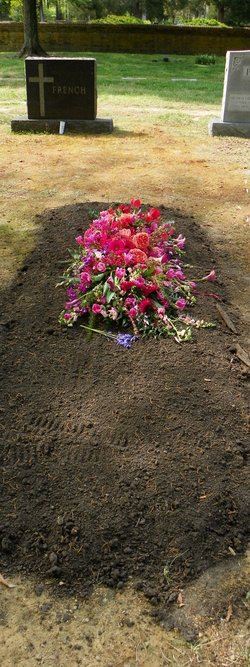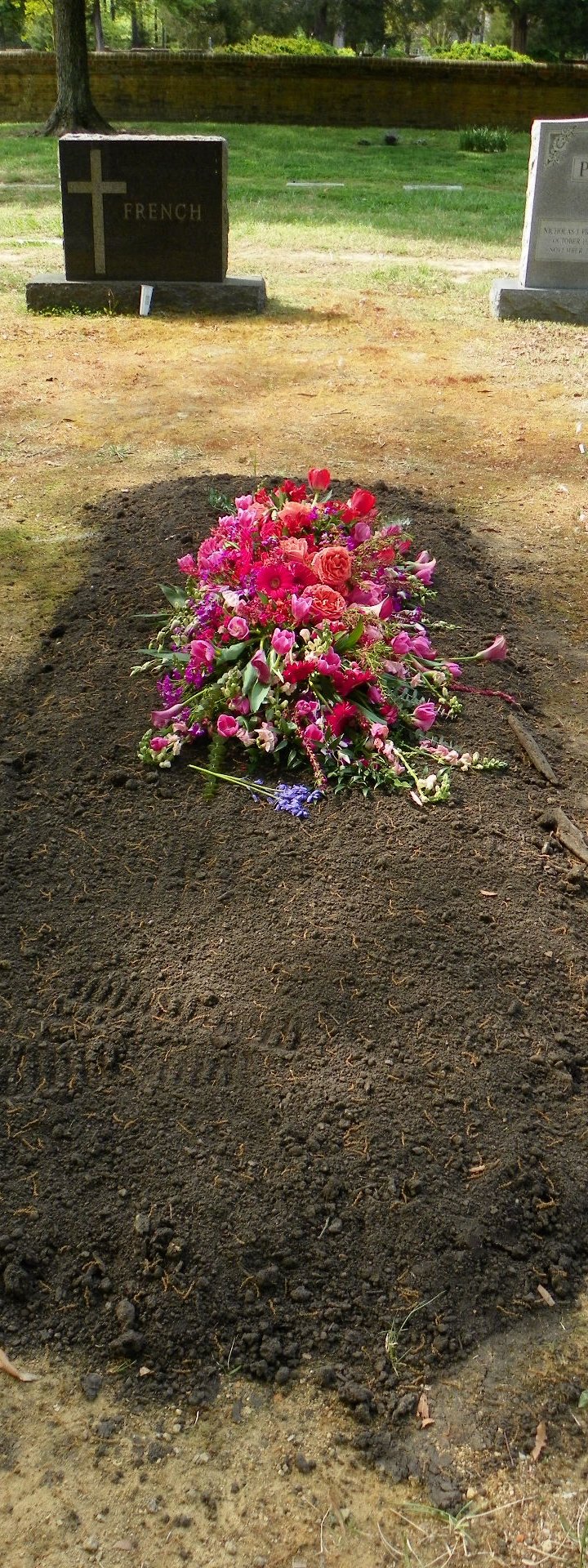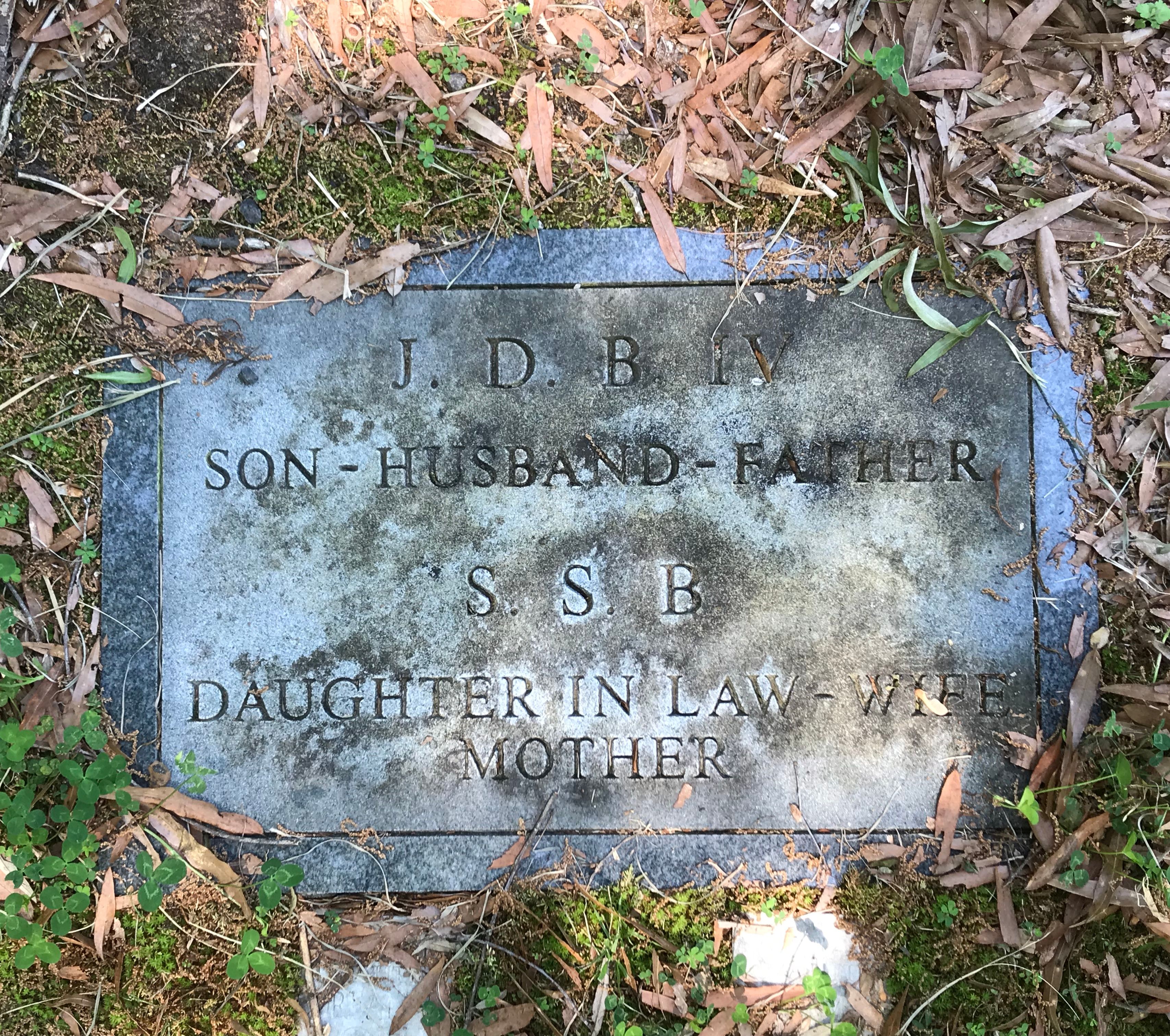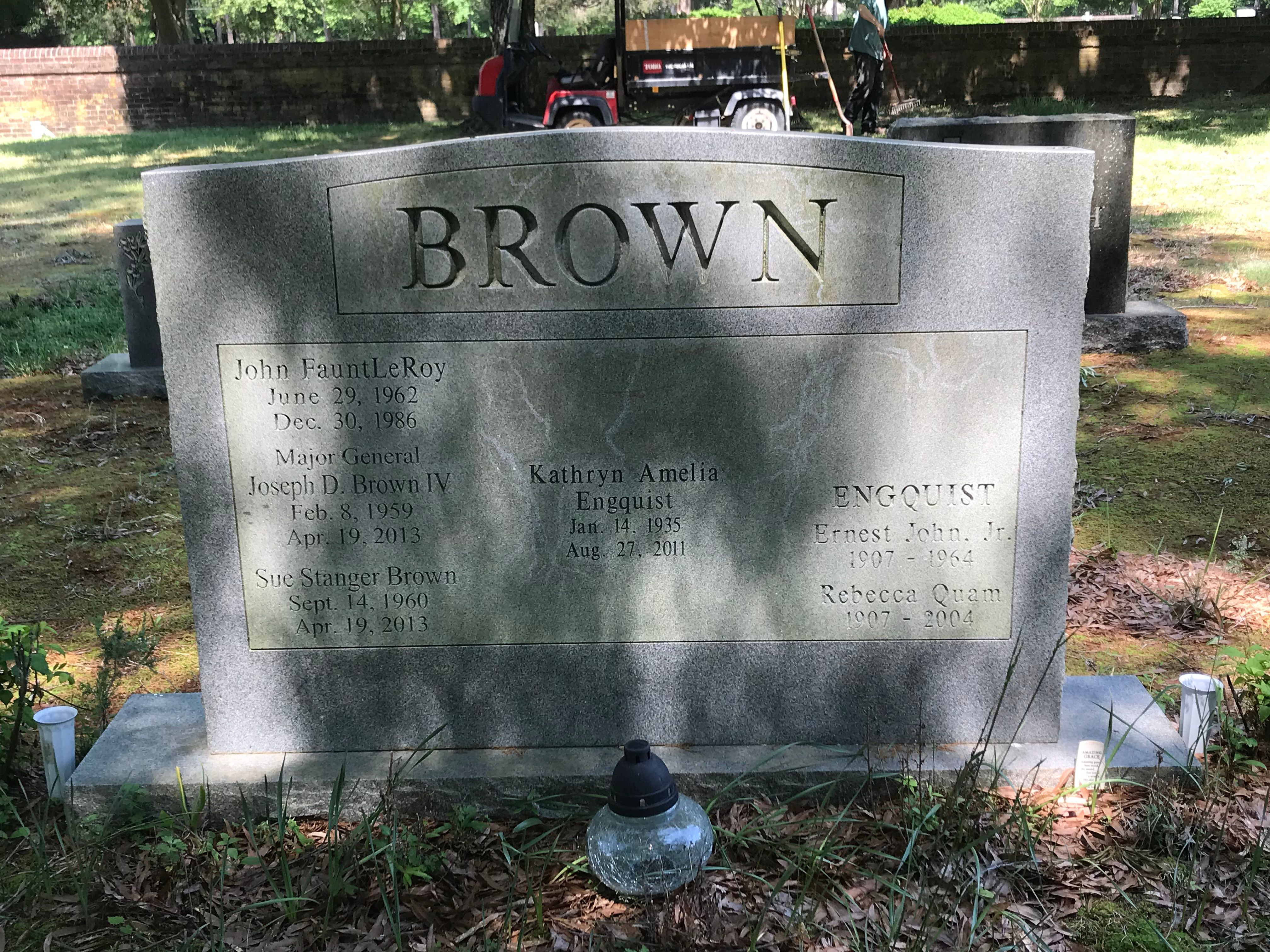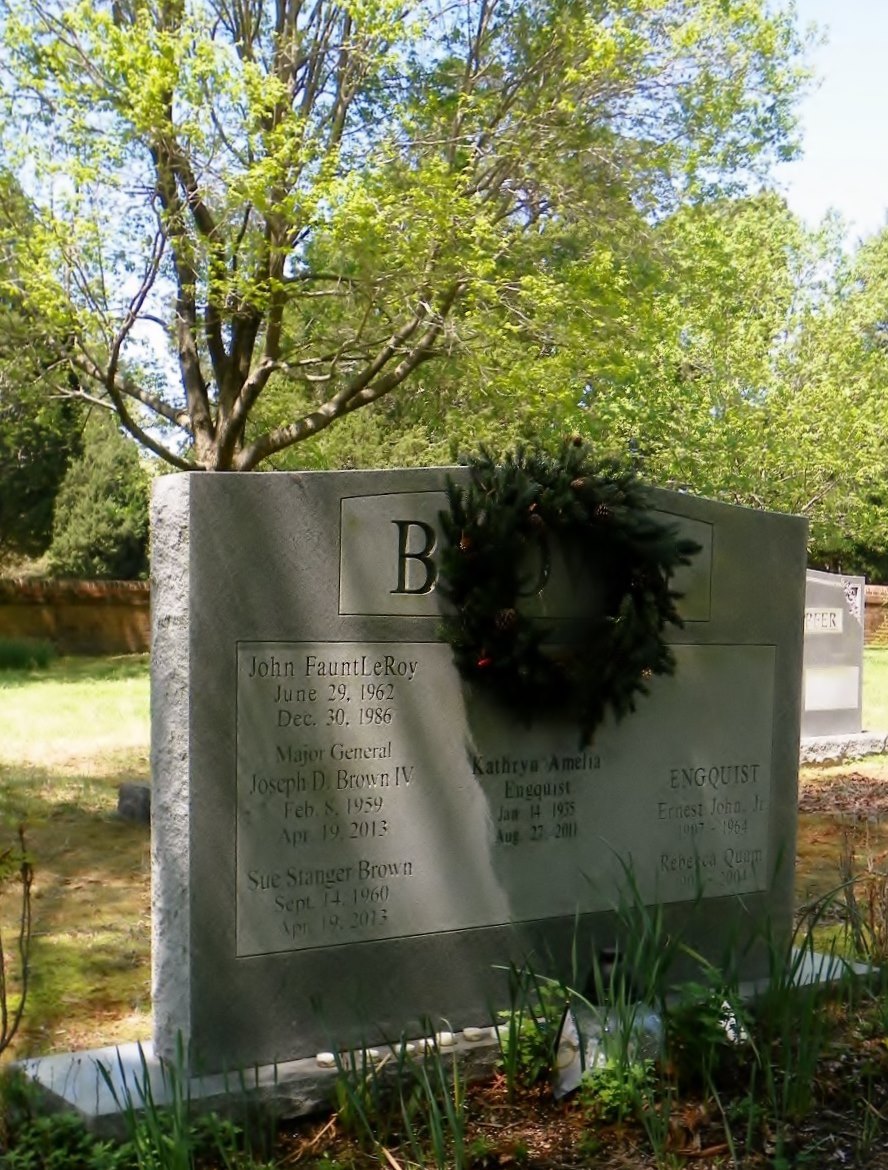Sue Stanger Brown was born in Washington, DC on Sept 14, 1960 and grew up in Annandale, VA where she graduated from Thomas Jefferson High School in 1978.
Sue graduated with honors from The College of William and Mary in 1982 and received a master's degree in business administration from Central Michigan University in 1986.
Sue was the principal cellist in the William and Mary Symphony Orchestra and continued to play in various symphonies and string quartets, including the Fairfax Symphony, throughout her life.
She was active in the communities where they were stationed and, at the time of her death, Sue was President of the Air Force Officers' Wives' Club of Washington, DC.
Joe and Sue were married on June 26, 1982, at Fort Myer Chapel in Arlington, VA.
Sue is survived by her father, Craig; her mother, Martha; and her brother, Scott Stanger.
A funeral service will be held on Friday, April 26 at 2:00 PM at Williamsburg Community Chapel, 3899 John Tyler Highway, Williamsburg, VA 23185.
Interment will follow at Cedar Grove Cemetery, 809 S. Henry St., Williamsburg, VA. In lieu of flowers, donations can be made in Joe and Sue Brown's memory to the Air Force Aid Society and PetConnect Rescue: Muddy Paws. Online condolences may be offered at www.nelsencares.com.
Published in Daily Press on April 26, 2013
____________________________________
Air Force general, an expert pilot, crashes plane in Virginia
By T. Rees Shapiro, April 21, 2013
(Washington Post)
A two-star Air Force general and his wife died Friday after the single-engine plane he was piloting crashed less than a mile from the runway at Williamsburg-Jamestown Airport, authorities said.
The crash that killed Maj. Gen. Joseph D. Brown IV, 54, and his wife, Susan, 52, was under investigation Sunday, and it was not immediately clear what led the experienced pilot to go down, said Jay Neylon, an air safety investigator with the National Transportation Safety Board.
"It's too early to come to any conclusions," Neylon said. "We are still in the preliminary stages of the investigation."
Brown, a 32-year Air Force veteran, was a decorated bomber pilot who flew sorties over Iraq and Afghanistan. He had been serving as commandant of the Dwight D. Eisenhower School for National Security and Resource Strategy at the National Defense University, based at Fort McNair in the District.
Neylon and Federal Aviation Administration officials said Brown took off from Potomac Airfield in Prince George's County at 3:55 p.m. Friday in a Cessna 210 and was about to land at the Williamsburg airport when the plane crashed at 4:53 p.m. Brown's father, Joseph D. Brown III, lives in the Williamsburg area. A woman who answered the phone at the family's home Sunday declined to comment.
The wreckage was about 800 yards from the airport in a wooded area in the Williamsburg Landing retirement community. The plane crashed about 50 feet from a house, but no buildings were damaged and no people on the ground were injured, said Corinne Geller, a spokeswoman for the Virginia State Police.
"We are deeply saddened by the loss of Joe Brown and his wife, Sue," Air Force Secretary Michael Donley and Air Force Chief of Staff Gen. Mark A. Welsh III said in a statement. "Joe and Sue dedicated their lives in service to our nation and their loss will be felt across our Air Force."
Joseph Daniel Brown IV was a 1980 history graduate of Virginia Military Institute in Lexington, Va. He received a master's degree in business administration from Central Michigan University in 1986.
Upon graduation from VMI, he earned his Air Force commission and began training as a pilot. He specialized in flying the B-52 Stratofortress heavy bomber, with a payload capacity of more than 70,000 pounds, and the B-1 Lancer, a swept-wing bomber capable of supersonic speeds. He accrued more than 4,300 hours in the cockpit and flew missions in support of Operation Iraqi Freedom and Operation Enduring Freedom.
Brown's courageous actions just days into the war in Iraq earned him the Distinguished Flying Cross.
On March 22, 2003, Brown, then a colonel, was tasked with flying his B-1 over classified locations in Iraq to destroy six Global Positioning System jamming towers, according to the citation.
Coursing through "lethal airspace," Brown's "extraordinary airmanship and bravery," allowed him to outmaneuver three surface-to-air missiles and dense antiaircraft fire to successfully bomb enemy towers.
The strikes were crucial to the early stages of the war because they allowed other bombers to find their targets with greater accuracy.
During the mission, Brown became the first B-1 pilot to penetrate Baghdad's airspace.
Early in his career, Brown served in posts in the Washington area, including at Air Force Headquarters and in the Office of the Secretary of Defense at the Pentagon.
His command assignments included the 28th Bomb Squadron, based at Dyess Air Force Base near Abilene, Tex., and the 28th Bomb Wing, based at Ellsworth Air Force Base near Rapid City, S.D. He held overseas postings at U.S. European Command in Mons, Belgium, and with NATO allied air forces in Eskisehir, Turkey.
Before his assignment to the National Defense University, he served as the deputy director for nuclear operations at U.S. Strategic Command at Offutt Air Force Base near Omaha.
He earned his second star in August of 2010.
Besides the Distinguished Flying Cross, his decorations include four awards of the Defense Superior Service Medal; the Legion of Merit; and the Bronze Star Medal, awarded for his "tireless leadership," the citation reads, which "resulted in the near flawless execution of over 700 combat missions."
Sue Stanger Brown was born in Washington, DC on Sept 14, 1960 and grew up in Annandale, VA where she graduated from Thomas Jefferson High School in 1978.
Sue graduated with honors from The College of William and Mary in 1982 and received a master's degree in business administration from Central Michigan University in 1986.
Sue was the principal cellist in the William and Mary Symphony Orchestra and continued to play in various symphonies and string quartets, including the Fairfax Symphony, throughout her life.
She was active in the communities where they were stationed and, at the time of her death, Sue was President of the Air Force Officers' Wives' Club of Washington, DC.
Joe and Sue were married on June 26, 1982, at Fort Myer Chapel in Arlington, VA.
Sue is survived by her father, Craig; her mother, Martha; and her brother, Scott Stanger.
A funeral service will be held on Friday, April 26 at 2:00 PM at Williamsburg Community Chapel, 3899 John Tyler Highway, Williamsburg, VA 23185.
Interment will follow at Cedar Grove Cemetery, 809 S. Henry St., Williamsburg, VA. In lieu of flowers, donations can be made in Joe and Sue Brown's memory to the Air Force Aid Society and PetConnect Rescue: Muddy Paws. Online condolences may be offered at www.nelsencares.com.
Published in Daily Press on April 26, 2013
____________________________________
Air Force general, an expert pilot, crashes plane in Virginia
By T. Rees Shapiro, April 21, 2013
(Washington Post)
A two-star Air Force general and his wife died Friday after the single-engine plane he was piloting crashed less than a mile from the runway at Williamsburg-Jamestown Airport, authorities said.
The crash that killed Maj. Gen. Joseph D. Brown IV, 54, and his wife, Susan, 52, was under investigation Sunday, and it was not immediately clear what led the experienced pilot to go down, said Jay Neylon, an air safety investigator with the National Transportation Safety Board.
"It's too early to come to any conclusions," Neylon said. "We are still in the preliminary stages of the investigation."
Brown, a 32-year Air Force veteran, was a decorated bomber pilot who flew sorties over Iraq and Afghanistan. He had been serving as commandant of the Dwight D. Eisenhower School for National Security and Resource Strategy at the National Defense University, based at Fort McNair in the District.
Neylon and Federal Aviation Administration officials said Brown took off from Potomac Airfield in Prince George's County at 3:55 p.m. Friday in a Cessna 210 and was about to land at the Williamsburg airport when the plane crashed at 4:53 p.m. Brown's father, Joseph D. Brown III, lives in the Williamsburg area. A woman who answered the phone at the family's home Sunday declined to comment.
The wreckage was about 800 yards from the airport in a wooded area in the Williamsburg Landing retirement community. The plane crashed about 50 feet from a house, but no buildings were damaged and no people on the ground were injured, said Corinne Geller, a spokeswoman for the Virginia State Police.
"We are deeply saddened by the loss of Joe Brown and his wife, Sue," Air Force Secretary Michael Donley and Air Force Chief of Staff Gen. Mark A. Welsh III said in a statement. "Joe and Sue dedicated their lives in service to our nation and their loss will be felt across our Air Force."
Joseph Daniel Brown IV was a 1980 history graduate of Virginia Military Institute in Lexington, Va. He received a master's degree in business administration from Central Michigan University in 1986.
Upon graduation from VMI, he earned his Air Force commission and began training as a pilot. He specialized in flying the B-52 Stratofortress heavy bomber, with a payload capacity of more than 70,000 pounds, and the B-1 Lancer, a swept-wing bomber capable of supersonic speeds. He accrued more than 4,300 hours in the cockpit and flew missions in support of Operation Iraqi Freedom and Operation Enduring Freedom.
Brown's courageous actions just days into the war in Iraq earned him the Distinguished Flying Cross.
On March 22, 2003, Brown, then a colonel, was tasked with flying his B-1 over classified locations in Iraq to destroy six Global Positioning System jamming towers, according to the citation.
Coursing through "lethal airspace," Brown's "extraordinary airmanship and bravery," allowed him to outmaneuver three surface-to-air missiles and dense antiaircraft fire to successfully bomb enemy towers.
The strikes were crucial to the early stages of the war because they allowed other bombers to find their targets with greater accuracy.
During the mission, Brown became the first B-1 pilot to penetrate Baghdad's airspace.
Early in his career, Brown served in posts in the Washington area, including at Air Force Headquarters and in the Office of the Secretary of Defense at the Pentagon.
His command assignments included the 28th Bomb Squadron, based at Dyess Air Force Base near Abilene, Tex., and the 28th Bomb Wing, based at Ellsworth Air Force Base near Rapid City, S.D. He held overseas postings at U.S. European Command in Mons, Belgium, and with NATO allied air forces in Eskisehir, Turkey.
Before his assignment to the National Defense University, he served as the deputy director for nuclear operations at U.S. Strategic Command at Offutt Air Force Base near Omaha.
He earned his second star in August of 2010.
Besides the Distinguished Flying Cross, his decorations include four awards of the Defense Superior Service Medal; the Legion of Merit; and the Bronze Star Medal, awarded for his "tireless leadership," the citation reads, which "resulted in the near flawless execution of over 700 combat missions."
Family Members
Sponsored by Ancestry
Advertisement
Advertisement
